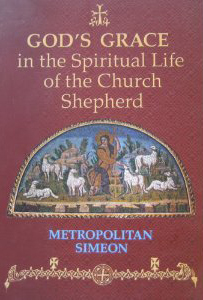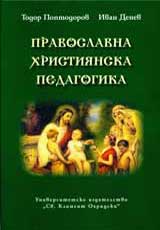- Американска и канадска художествена литература
- Антикварни книги
- Антични автори
- Балканска художествена литература
- Библиофилски издания
- Биология
- Българска художествена литература
- География, пътеводители
- Детска литература
- Европейска художествена литература
- Езикознание, лингвистика, семиотика, филология
- Езотерика, духовни учения
- Здравна и медицинска литература
- Земеделие и животновъдство
- Изкуство
- Икономическа литература
- История
- Календари, сувенири
- Компютърна литература
- Кулинарна литература
- Културология, етнология и фолклор
- Латиноамериканска художествена литература
- Литературна критика
- Литературна периодика
- Медии и комуникации
- Нобелова награда за литература
- Политология
- Правна литература
- Православна литература
- Психология
- Речници, справочници, енциклопедии
- Социология
- Спорт, хоби
- Точни науки, техника
- Учебна литература, Педагогика
- Философия
- Художествена литература от Азия, Африка и Австралия

God’s Grace in the Spiritual Life of the Church Shepherd
Продуктов номер: 27617Изчерпана
Автор: Митрополит Симеон
Категория: Православна литература
Издателство: Български художник
Състояние: Нова книга
ISBN: 978954061418
236 страници
меки корици
Първо издание: първо издание, 2008 год.
Народност: българска
INTRODUCTION
The grace of God is of fundamental importance to the Christian faith. This is clearly seen in the words addressed by the Saviour Christ to His disciples during His parting conversation with them at the Last Supper: "Nevertheless I tell you the truth. It is to your advantage that I go away; for if I do not go away, the Helper will not come to you; but if I depart, I will send Him to you" (John 16:7).
Elucidating the meaning of these words, the Ven. Simeon the New Theologian says: "This was the ultimate goal of the incarnate stewardship, i.e. it was precisely for this purpose that had become incarnated the Son of God, the God Word, and had become a human being, in order that the souls of those, who believe in Him as in a God and a human being, may receive the grace of the Holy Spirit... When they are reborn, recreated and renovated through the holy baptism - that they may become like the first man prior to the fall: that their mind, their conscience and their feelings may be consecrated by the grace of the Holy Spirit and that their life may not lean toward debauched degradation, that their soul may not succumb to carnal and worldly lusts."
It is clear that the point at issue here is not the general grace in external providence, profiting from which are even the pagans, but the grace as an internal reviving force, which is being conferred on us by virtue of the redemptive services of the Saviour Christ in the holy sacraments of baptism and the unction with chrism.
That supreme grace of the New Testament had once and for all been given to the successors of Christ, the holy apostles, on the fiftieth day after the rising of Christ from the dead. During the apostolic age, the grace of the Holy Spirit was active and manifested itself tangibly for many of the Christians of that time: it was directing their steps (Acts 6:6-7; 20, 22), it was manifesting itself in the extraordinary charismatic talents of prophets, the speaking of foreign languages (1 Cor 14; Acts 2:4; 11:28; 10:46; 19:6; 21:10-11); it had even been shaking, by the power of prayer, the place where the early Christians were offering their prayers (Acts 4:31).
During the following centuries the grace of the Holy Spirit was lending strength to the holy martyrs in their incredible feats of suffering for Christ's name; it was giving inspiration to the holy fathers, the venerable ones and the confessors of the Orthodox faith for unyielding battle against the heresies and false teachings, on the one hand, and against the passions and the vices, on the other.
In our days, it seems as if no such exceptional manifestations of the grace of the Holy Spirit are to be observed - even in the life of Orthodox Christians, many of whom have lost all notion of the baptismal reviving grace of the Holy Spirit. But
does that mean that the grace has generally become scarce in the Church of Christ? "When they asked the reverend Seraphim why there were of late no such great champions of piety as there were in ancient times, he replied: Because we lack resolve... But the grace of God, which helps the one who is searching for God with all his heart, remains the same as it had been then, because Jesus Christ is the same yesterday, today, and for ever."
So then, the grace of the Holy Spirit is, until this very day, not growing scarce and scanty in the true Church of Christ and is being granted invariably to its faithful children through the sacraments established by God, which are administered by the hierarchy of the Church established by God.
Hence, the issue of the beneficence of the shepherd in the Church acquires an exceptionally crucial and decisive significance, especially in our days when the concepts and notions related to the Church are so often misrepresented and confused. For, if in antiquity put to heretical misinterpretation were the dogmas about the Holy Trinity, the God-manhood of the Saviour Christ etc., today misrepresented is the dogma about the one Cathedral Church, formulated in the ninth article of the Symbol of the Faith.
That is why we should lay at the core of the deliberations about the Church of Christ and its pastoral service the concept of "the grace of the Holy Spirit", thanks to which the Church had been founded and without which real shepherdship would have been unthinkable.
It is only under such a correct formulation of the issue that it will immediately become clear that the so-called protestant churches do not possess any blessed hierarchy at all, and therefore no shepherdship or pastoral service whatsoever, due to the fact that they do not have the sacrament of priesthood and do not recognize the blessed successive lineage from the holy apostles who had received the grace of the Holy Spirit on the day of the first Christian Pentecost. As far as the Roman Catholic Church is concerned, such a successive apostolic authority in its hierarchy has undoubtedly been retained, but owing to deviations from the truths of the Orthodox faith this grace is not manifesting itself in its fullness.
It is precisely here that lies the essential difference between Orthodoxy and Roman Catholicism. In Catholicism the grace received in the sacraments of holy baptism and the holy unction with chrism is hidden as a divine spark under the ashes of all sorts of false doctrines, whereas in our Orthodox church it shines like a sun, manifesting itself in marvellous and diverse gifts with which the Lord has endowed His saints, thus realizing in their life His words "As for the saints who are on the earth, they are the excellent ones, in whom is all my delight".
When we discuss the subject of "God`s Grace in the Spiritual Life of the Church Shepherd", we are thinking of the Orthodox clergyman in the Church as vessel and steward of God`s grace.
